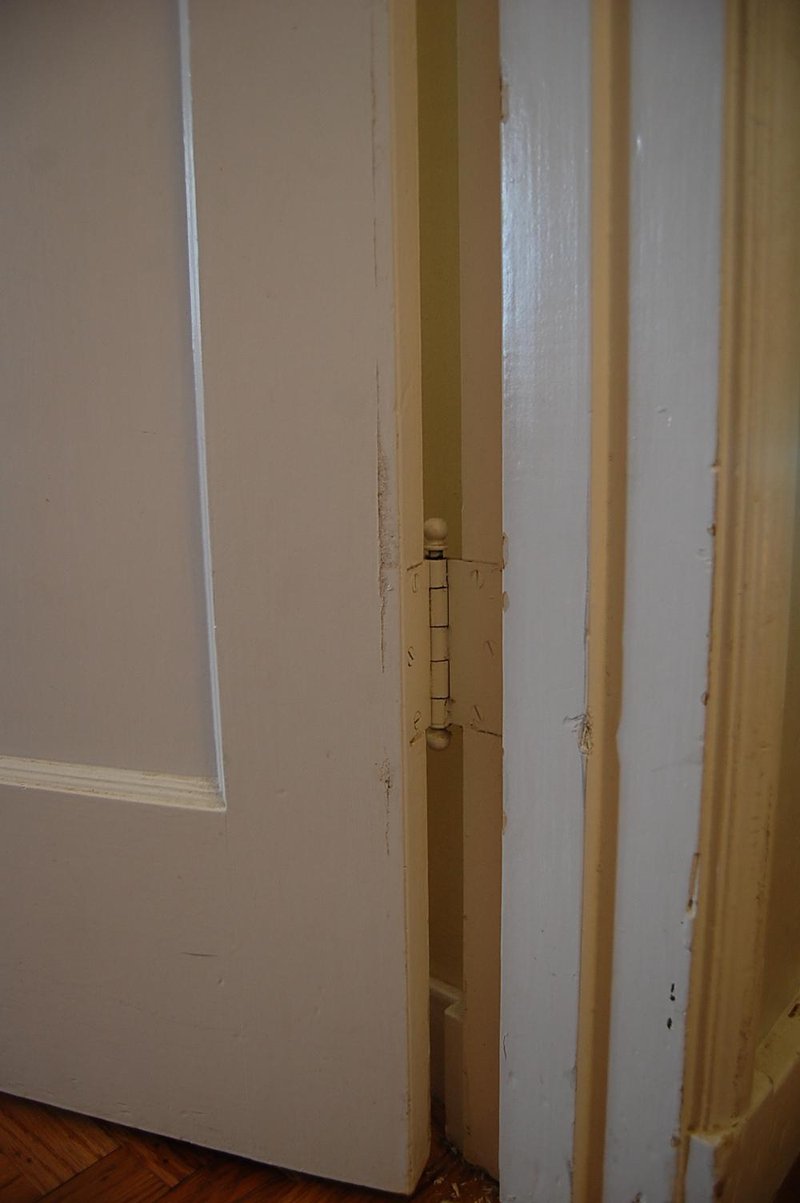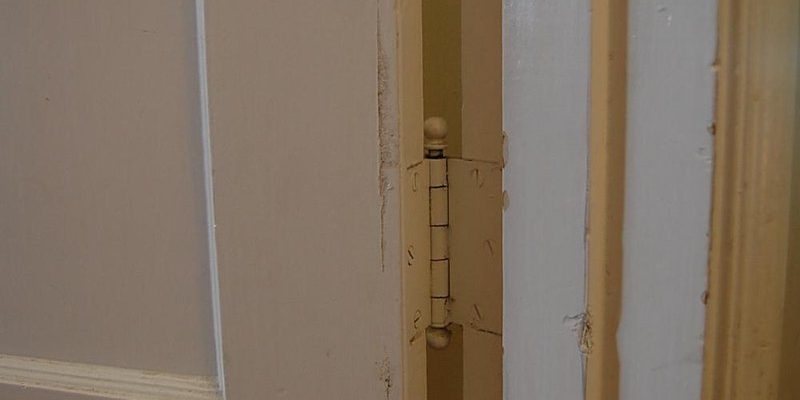
Here’s the thing: doors, especially exterior ones, have a tough job. They carry their own weight, block out weather, and put up with a ton of daily use. Over time, all that work can cause small problems—like a hinge that suddenly starts popping. Don’t worry, though. This isn’t a secret code for disaster. By understanding what’s behind the popping sound, you can stop it for good (or at least impress friends with your hinge knowledge).
What Causes a Door Hinge to Pop?
Let me explain, because the reasons behind a popping exterior door hinge are surprisingly simple—if not always obvious. When you hear a pop, what you’re really hearing is *stress* being released. Metal-on-metal friction, bits of dirt, or even slight changes in humidity can create just the right conditions for a hinge to snap, crackle, and pop.
The most common culprit is just a lack of lubrication. Door hinges—especially on exterior doors from brands like Kwikset, Schlage, or Yale—are exposed to weather. Rain, humidity, and dust can dry out the lubricant. That means the metal parts rub roughly together and build up tension. When that tension finally lets go (often during the door’s swing), you get that sharp popping noise.
Another cause is misalignment. Sometimes, the door isn’t perfectly square in its frame—maybe the foundation has settled, someone slammed it too hard, or it was just installed a little off. The pressure on the hinges increases as the door moves, until—pop!—the parts snap past each other.
Sometimes, it’s not even about wear and tear; it’s about paint. Yep, if you painted over your hinges or got paint in the joint, that sticky layer can bond parts together until they suddenly pull free. The result? You guessed it: Popping.
How Does Humidity and Temperature Affect Door Hinges?
Honestly, you’d be surprised just how much your door cares about the weather. Wood, metal, even the screws—all these parts expand and contract with changes in humidity and temperature. If you live somewhere with big seasonal swings, you might notice that popping sound kicks up in spring or fall.
When the door swells from humidity, it can put extra pressure on the hinges. Imagine trying to close a stuffed suitcase—the harder you push, the more things want to spring out. The door, swollen and tight in its frame, transfers that extra force right onto the hinge pins and leaves. As the metal parts shift and adjust, you get those loud pops and snaps.
On the flip side, cold temperatures can *shrink* the wood and make the hinge pins rattle or shift unexpectedly. That sudden change in pressure causes a release of built-up tension with—you guessed it—a pop. So, exterior door hinges are always coping with their environment, and sometimes, they just need a little extra care to keep things quiet.
Are All Popping Sounds in Hinges Bad?
You might be wondering if every pop spells doom for your door. Not necessarily! Some popping is more annoying than dangerous. It’s like the difference between a car’s noisy AC blower and its brakes squealing—one is inconvenient, the other you need to fix fast.
Here’s what matters: frequency and intensity. A hinge that pops once in a blue moon, especially after a humidity spike, might just need a dab of lubricant. But if your exterior Schlage door hinge pops every time you touch the handle, or you notice the door dragging, that’s a clue something’s wrong—either with alignment, wear, or damage.
Also, pay attention to other symptoms. If the door suddenly gets harder to close, won’t stay latched, or you notice gaps where there weren’t any before, the popping could mean something has shifted. Repeated popping under pressure can even indicate that the hinge screws are pulling out, or that there’s hidden rust inside.
In short: not every pop is a crisis, but frequent, loud, or new popping sounds should nudge you to check things out.
How to Troubleshoot a Popping Exterior Door Hinge
You don’t need to be a master carpenter to fix this. Here’s a step-by-step approach for anyone with a basic toolkit.
- Listen and spot: Open and close the door slowly. Try to pinpoint *which* hinge is making the noise—top, middle, or bottom.
- Check alignment: Look for gaps, sagging, or dragging. If the door seems off, you might need to adjust the hinge screws or use shims to get things plumb again.
- Look for wear and dirt: Examine the hinge for visible rust, dust, or paint buildup. Anything that shouldn’t be there? Clean it gently with a dry cloth or brush.
- Lubricate: Most of the time, applying a few drops of silicone-based lubricant or a graphite spray to the hinge pin and working the door back and forth does the trick. Avoid oil that can attract more dirt.
- Tighten screws: Loose screws in the hinge or frame can shift under stress, making that pop. Use a screwdriver to snug them up—just don’t overdo it and strip the holes.
Don’t forget to wipe away excess lube, and avoid getting anything on the door’s finish. If the popping sound keeps coming back, or the hinge seems bent or cracked, it might be time to swap it out for a new one.
Can You Use Universal Hinges or Should You Stick With Brand Hinges?
Here’s where a lot of folks get tripped up. You might see “universal exterior door hinge” labels at the hardware store and wonder if you can swap out just any hinge for your Kwikset or Schlage door. The answer: sometimes yes, but sometimes not.
Universal hinges fit most standard doors—particularly if you’re dealing with the usual 3.5-inch or 4-inch size for residential entries. The shape, pin, and screw pattern generally match. But some brands, especially older or security doors, use proprietary hinge plates or non-standard screws. So if you try to pair a universal hinge with certain Yale or custom doors, it might not sync up right—leading to future popping or worse, sagging.
If in doubt, bring the old hinge to the store. Compare hole patterns and thickness, not just size.
In terms of durability and long-term “quietness,” many brand-name hinges offer better coatings to resist rust, meaning fewer sticking or popping problems down the line. If you live in a wet or humid climate, splurging on stainless steel or brass hinges, instead of cheap universal ones, can buy you peace and quiet for years.
Should You Try to Fix a Popping Door Hinge Yourself?
Honestly, for most people, this one’s a YES. The steps are straightforward, and you usually just need a screwdriver, lubricant, and maybe some patience. As long as you’re not dealing with a warped door or a badly damaged frame, most popping hinge noises can be fixed in under half an hour.
Here’s the thing, though: If your door isn’t just popping, but is also hard to close, feels loose, or you spot cracks in the wood near the hinge, don’t try to force things. That can make the problem (and repair) much worse. In those cases, calling a pro or handyman makes sense.
One word of caution—if you’re troubleshooting an exterior door with built-in security features, like a Schlage electronic lock, make sure you don’t disrupt any wiring or sensors when removing hinges. Disconnect the battery or check the manual before you start tinkering too much.
How to Prevent Door Hinges From Popping in the Future
It’s much easier to stop a popping hinge before it starts. Make a habit out of inspecting your exterior door hinges at least twice a year—especially before and after the wet season.
- Keep hinges lubricated: A couple of drops of lubricant goes a long way. Wipe excess to prevent dust buildup.
- Check screws for tightness: Snug up any loose ones, but don’t overtighten or you could strip the wood.
- Avoid painting over hinges: If you’re painting your door, tape over the hinges—or better yet, remove them temporarily.
- Watch for swelling: If your door starts sticking, don’t force it. Check the fit, and sand a bit if needed, before the stress gets to the hinges.
For bonus points, write down the type of hinge you have (brand and size)—it’ll make future troubleshooting, code resets, or syncing up new hardware a breeze.
When Popping Noises Signal a Bigger Problem
Most of the time, a popping noise is little more than a cry for lubrication or a warning to tighten up a few screws. But sometimes, it’s a symptom of a bigger problem with your door, frame, or even your home’s foundation.
If you notice the popping sound is paired with cracks in the wall, major gaps under the door, or you’ve had recent flooding or settling, get things checked out. Popping can be the door’s way of telling you the frame is shifting or the structure is under stress.
For people with electronic locks or remotes, a popping hinge can also mean the door isn’t closing tightly enough, which could mess with the battery life, sync, or even code pairing for your lock. If that’s the case, fixing the hinge could solve both noise and security issues.
Closing thoughts: A popping exterior door hinge might sound alarming, but most of the time, it’s an easy fix with a little attention, some lube, or a quick tightening of screws. With a bit of regular care, your door can swing smoothly—and quietly—no matter what the weather throws at it. And hey, next time a friend complains about their door popping, you’ll be the hinge hero with all the answers.
